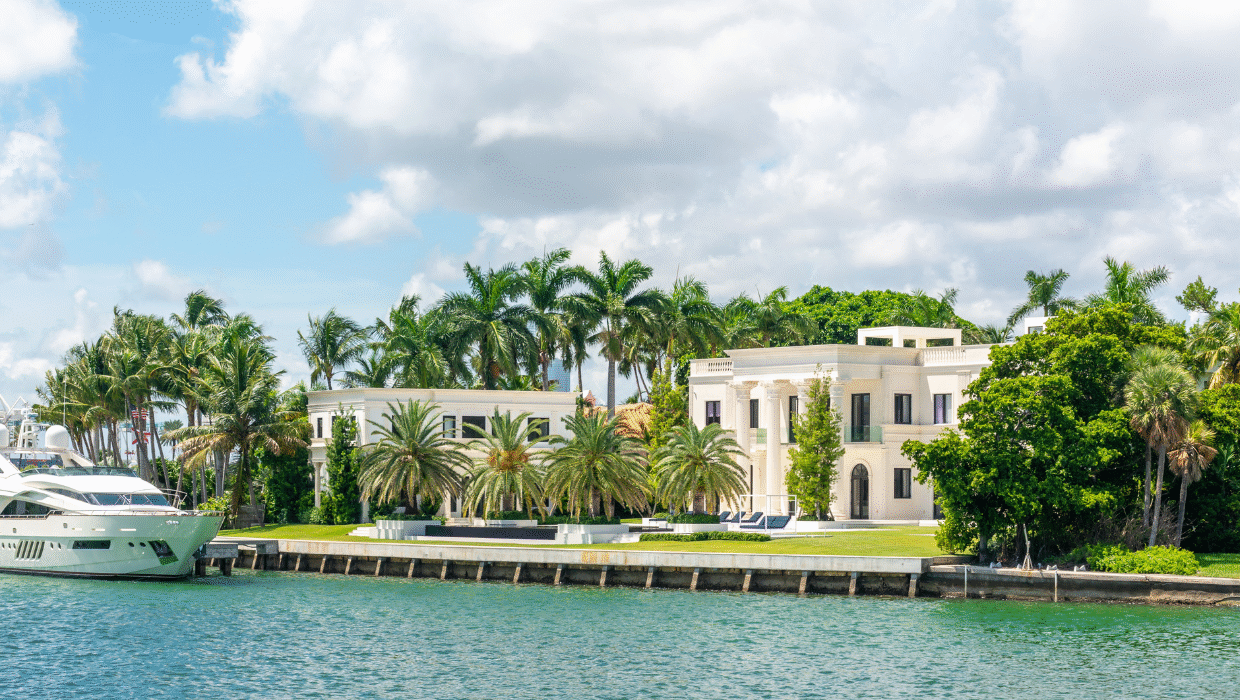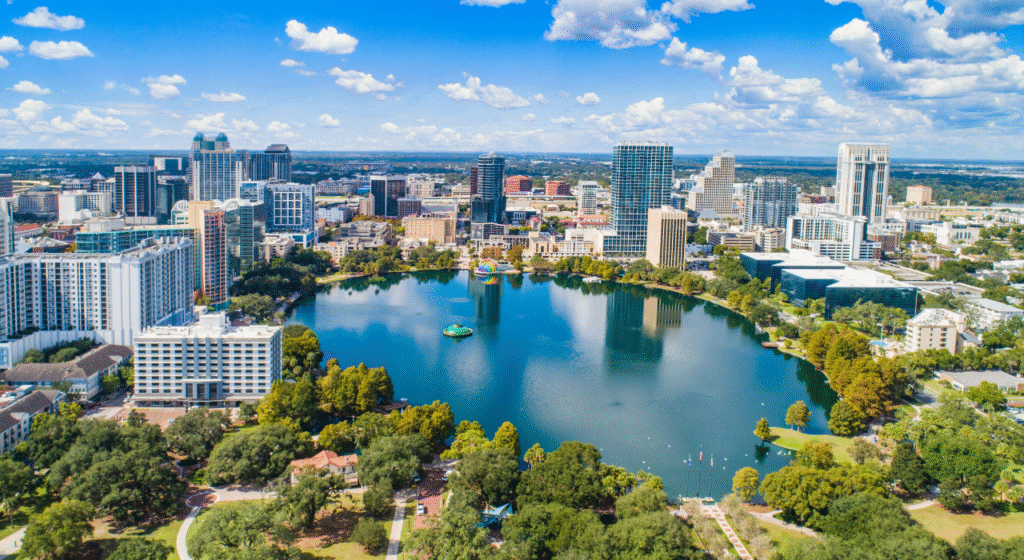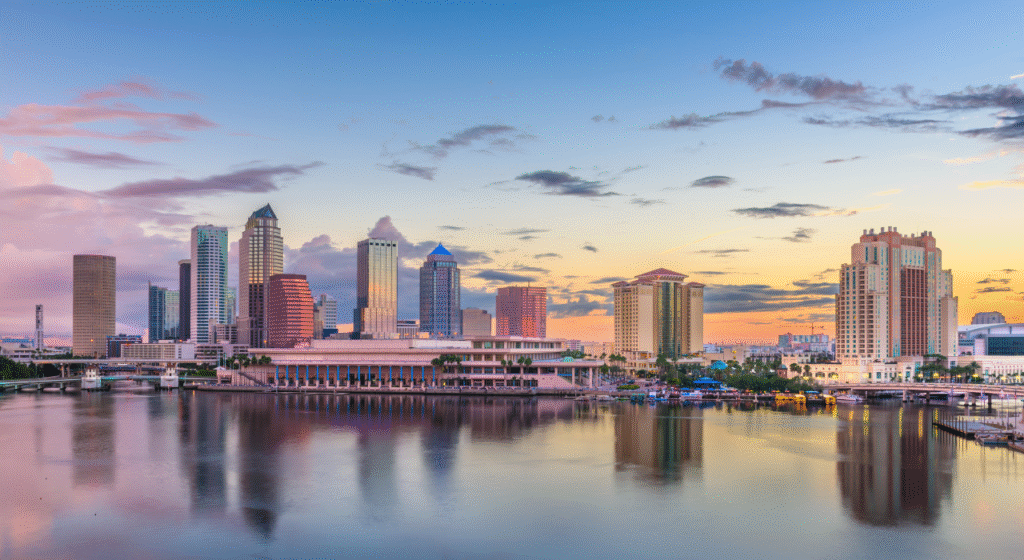
Florida Real Estate for Foreigners
Why Florida Still Reigns Supreme
Florida has long been a magnet for foreign real estate investment—and in 2025, this trend shows no sign of slowing down. From luxurious high-rise condos in Miami to family homes in Disney’s backyard, international buyers continue to see the Sunshine State as a safe haven for capital growth, rental income, and even U.S. residency options. But what’s driving this unshakable interest?
In this guide, we dive deep into data, uncover investor motivations, and highlight the most profitable areas across Florida.
The Macro View: Florida’s Economic Resilience in 2025
GDP Growth & Employment Recovery

Despite global uncertainties, Florida’s economy has shown remarkable strength. The state’s GDP is projected to grow at a rate of 3.5% in 2025, outpacing national averages. Major job hubs like Miami, Tampa, and Orlando continue to attract talent, boosting demand for both rental and owner-occupied properties.
Population Growth and Migration Trends
Florida’s population surpassed 23 million in 2024 and is expected to grow by another 300,000 residents in 2025, largely driven by domestic migration and international relocations. Cities like Naples and Sarasota have seen a 6–8% year-over-year increase in new residents, keeping housing demand strong.
Foreign Investment Surge: A Look at the Numbers
Real Estate Investment Trends
According to the National Association of Realtors (NAR), foreign buyer purchases in Florida increased by 28% in 2024, and projections indicate even higher numbers for 2025. Latin American investors continue to dominate, especially in Miami and Orlando.
Commercial vs. Residential: Where the Money Flows
While residential properties dominate, commercial assets like multi-tenant retail centers and logistics warehouses are becoming increasingly attractive—especially for institutional investors from Canada and Germany.
Profiles of the 2025 Foreign Investor
Brazilian, Canadian, and European Buyers
- Brazilians: Seek dollar-based assets, lifestyle appeal, and potential paths to U.S. visas.
- Canadians: Often focus on vacation homes and seasonal rentals.
- Europeans: Increasingly eye coastal cities and passive investment opportunities.
Motivations: Lifestyle, ROI, and Residency Options
Whether it’s proximity to theme parks, beach lifestyles, or EB-5 visa eligibility, foreign buyers prioritize:
- Rental income from vacationers
- Wealth diversification
- Legacy property for family use
Top Performing Cities for Investment in 2025

Miami: International Luxury Hub
- Booming pre-construction market
- Strong luxury rental demand
- International buyer-friendly infrastructure
Orlando: Short-Term Rental Goldmine
- Airbnb and vacation rentals flourish
- Proximity to Disney World, Universal, and I-Drive
- Fast-growing job and education sector
Tampa & St. Pete: Underrated Gems
- Affordable entry points
- High population growth
- Coastal lifestyle with tech industry roots
Kissimmee & Davenport: ROI Machines
- Attract foreign investors seeking under $500k homes
- Popular with tourists and long-term renters
- High yield with low maintenance costs
Hot Property Types: Where Are Investors Putting Their Money?
Vacation Rentals & Airbnb-Friendly Homes
With continued high tourism, properties that allow short-term rental are still hot commodities.
Multifamily and Condo Developments
Investors are turning toward multifamily properties for consistent income, especially near universities and hospitals.
Tax Benefits and Legal Protections for Foreign Buyers
Florida’s Landlord-Friendly Laws

Florida’s eviction process is efficient and transparent, making it attractive to out-of-country landlords.
No State Income Tax
Foreign investors enjoy higher net returns as Florida doesn’t impose state income tax—a major advantage over California or New York.
Financing Options for Foreigners
How International Buyers Secure Loans
Non-resident aliens can obtain U.S. mortgages through specialized programs that consider international creditworthiness.
Down Payment & Documentation Requirements
Most banks require 30–40% down, valid visa, and proof of income/assets from the country of origin.
New Developments and Pre-Construction Trends
Gated Communities, Smart Homes, and Green Tech

Eco-conscious construction and gated luxury are key themes in 2025 pre-construction launches.
Investment in Master-Planned Communities
Projects like Lake Nona and Horizon West attract high-value investors looking for long-term growth.
Risks and Red Flags in 2025
Insurance Costs and Climate Challenges
Florida’s coastal markets face increasing insurance premiums due to climate-related risks, particularly hurricanes and flooding.
Market Corrections and Overvalued Zones
Some South Florida zip codes may be reaching price ceilings—market studies suggest cautious entry.
Expert Predictions for the Next 3–5 Years

Appreciation Forecasts by Region
- Miami: 6–8% annual growth
- Orlando: 5–6%
- Tampa Bay: 7–9%
Long-Term Economic & Real Estate Outlook
Florida’s status as a no-tax, high-growth, tourist-rich state will continue to attract capital through 2030 and beyond.
Conclusion
Whether you’re looking for passive income, lifestyle upgrade, or U.S. immigration pathways, investing in Florida real estate in 2025 is a strategy rooted in both logic and opportunity. With a robust economy, global appeal, and a welcoming legal framework, the Sunshine State continues to shine for international buyers.
Ready to explore your Florida investment opportunity?
Get connected with us, pre-vetted listings, and lending solutions tailored to foreign investors.
FAQ
Can foreigners buy real estate in Florida without a visa?
Yes. A visa is not required to purchase property in Florida, only to stay long-term.
Is financing harder for foreign nationals?
It requires more documentation and a higher down payment, but there are many lenders who cater to foreign buyers.
What are the best cities for ROI in 2025?
Orlando, Kissimmee, and Tampa show the strongest ROI potential this year.
How can I qualify for a U.S. visa through real estate?
Through programs like EB-5 or investment in regional centers; consult an immigration attorney.


